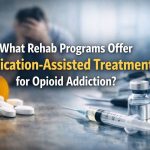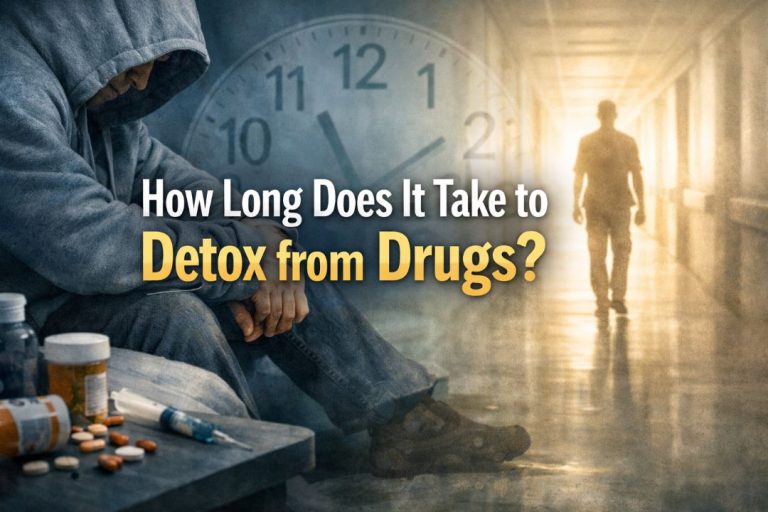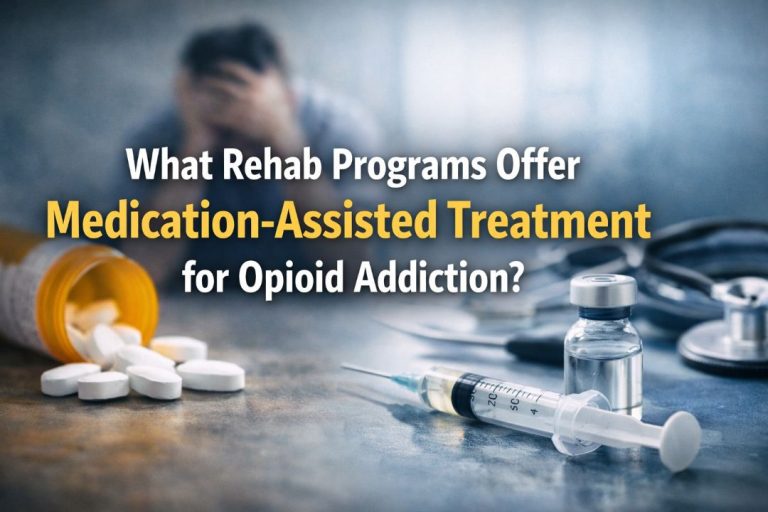Maintaining long-term sobriety from addiction is never easy. People must continuously practice their recovery maintenance techniques without cutting any slack. When someone does slack in their recovery, they put themselves at risk of suffering from a relapse.
Relapse is common, so there is nothing to be ashamed of when it happens. Between 40-60% of people who receive substance abuse treatment relapse at some point in their recovery.[1] However, many people who struggle with relapse hide it from their loved ones, causing them to quickly spiral out of control, as they are not being held accountable by anyone.
Relapse doesn’t happen overnight. There are often many warning signs that relapse is about to happen or that it has already happened. It’s important to be aware of the six most common warning signs of relapse because people tend to hide their relapse from those closest to them due to shame or guilt.
1. Stress
Many people use drugs and alcohol as a coping mechanism for stress. As a result, one of the most important aspects of addiction recovery is learning positive coping mechanisms that can help them healthily deal with stress. Without healthy coping skills, individuals are at extreme risk of relapsing when they experience stress.
If someone’s rehab program fails to provide them with effective and healthy coping mechanisms, they will eventually end up struggling once they deal with stress for the first time. Additionally, if someone has already relapsed they will inevitably deal with increased levels of stress. If left unchecked, excess stress could cause a person’s relapse to quickly spiral out of control and become severe.
2. Social Isolation
Having healthy connections with other humans is a vital part of addiction recovery.[2] When someone is doing well in their sobriety, they will continue socializing and interacting with others in a mutually healthy manner.
However, if someone has relapsed or is about to relapse, they will slowly begin to isolate themselves from others. People do this as they are attempting to hide their drug or alcohol use from those who care about them. As the relapse increases in severity, they will socially isolate themselves from loved ones even further.
100% Confidential Support is Available 24/7
No matter what you’re going through, you’re not alone. Our dedicated team is here to provide a safe, judgment-free space where you can talk openly and honestly. Whether you need emotional support, resources, or just someone to listen.
We’re here for you—completely confidential and always respectful of your privacy. Call us today!
3. Major Life Changes
While major life changes can be a good thing, they can also increase the stress in someone’s life. For example, getting a new job could provide someone with great opportunities, however, it could also be a source of immense stress.
A person could be worried about whether they will be any good at their new job, or feel nervous about a new relationship they are beginning, and second-guess whether they can afford that new house or not. Whatever the major life change is, anything that causes a huge change in routine could trigger a relapse and is one of the many signs that a relapse could be coming.
Contact Solutions Healthcare
Battling with Drug and Alcohol Addition? Remember, you are not alone and we are here to help you!
4. Neglecting Their Recovery Program
The most important aspect of addiction recovery is having a program and sticking to it. This means attending AA meetings, engaging in therapy, participating in sober fun, and continuing self-care techniques.
Oftentimes, when people in recovery start feeling secure in their sobriety, they begin to reduce the number of meetings they attend or cut back on therapy sessions. This is almost always a mistake, as the person is becoming overly confident in their recovery. Once they begin to neglect their recovery program, they are at serious risk of drug and alcohol relapse.
Neglecting one’s recovery can also bleed over into one’s daily responsibilities. Once they begin slacking in one area of their life, they will slack in others. This may mean that they stop performing as well in school, at work, or at home with their family.
Carelessness in their program and their everyday life will leave them with lots of free time. They may begin to feel more stressed than usual, as their daily responsibilities begin to pile up and they aren’t getting the emotional support they need from their meetings anymore. This can easily turn into a full-blown relapse.
5. Romanticizing Past Drug Use
Once someone begins to think about their past drug use in a glorifying manner, they are well on their way to a relapse.
During addiction treatment, people are told to “play the tape through,” which means to remember what it was like when they were doing drugs and recall the bad things that happen when using drugs. Someone who is recovered will remember the awful moments when addiction was really bad. But someone who is ready to relapse will remember the fun times instead of imagining the reasons they got sober in the first place.
This causes them to begin romanticizing their past drug use, which means imagining it as better than it truly was. Once someone is doing this, they will probably relapse soon without proper intervention.
6. Getting Defensive
Relapse can be a very embarrassing experience for a recovering addict, especially when they aren’t aware of how common relapsing is. Someone who relapses and lacks a support system that is strong enough to hold them accountable will likely attempt to hide their relapse from those around them. While this is often done by denying the relapse happened, it can also be done by avoiding conversations about relapse entirely.
If someone is asked whether they suffered from a relapse and they become extremely defensive, they are most likely hiding their slip-up from their loved ones.
100% Confidential Support is Available 24/7
No matter what you’re going through, you’re not alone. Our dedicated team is here to provide a safe, judgment-free space where you can talk openly and honestly. Whether you need emotional support, resources, or just someone to listen.
We’re here for you—completely confidential and always respectful of your privacy. Call us today!
Getting Addiction Treatment After a Relapse
If you or someone you love has suffered a relapse, it’s important to receive addiction treatment as soon as possible. Relapsing can be dangerous, as many people attempt to use the same amount of substances as they did when they had a tolerance. This can lead to a fatal overdose.
Prevent relapse by contacting Solutions Healthcare. We can provide you with the tools you need to maintain long-term sobriety such as outpatient rehab, alumni groups, and sober living. Call now to get started.






















